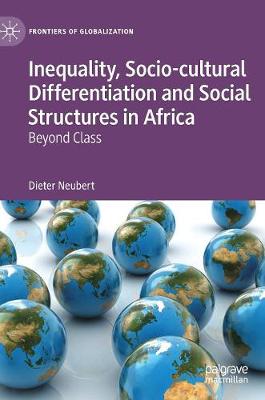Frontiers of Globalization
1 total work
Inequality, Socio-cultural Differentiation and Social Structures in Africa
by Dieter Neubert
Published 8 July 2019
This book contends that conventional class concepts are not able to adequately capture social inequality and socio-cultural differentiation in Africa. Earlier empirical findings concerning ethnicity, neo-traditional authorities, patron-client relations, lifestyles, gender, social networks, informal social security, and even the older debate on class in Africa, have provided evidence that class concepts do not apply; yet these findings have mostly been ignored.
